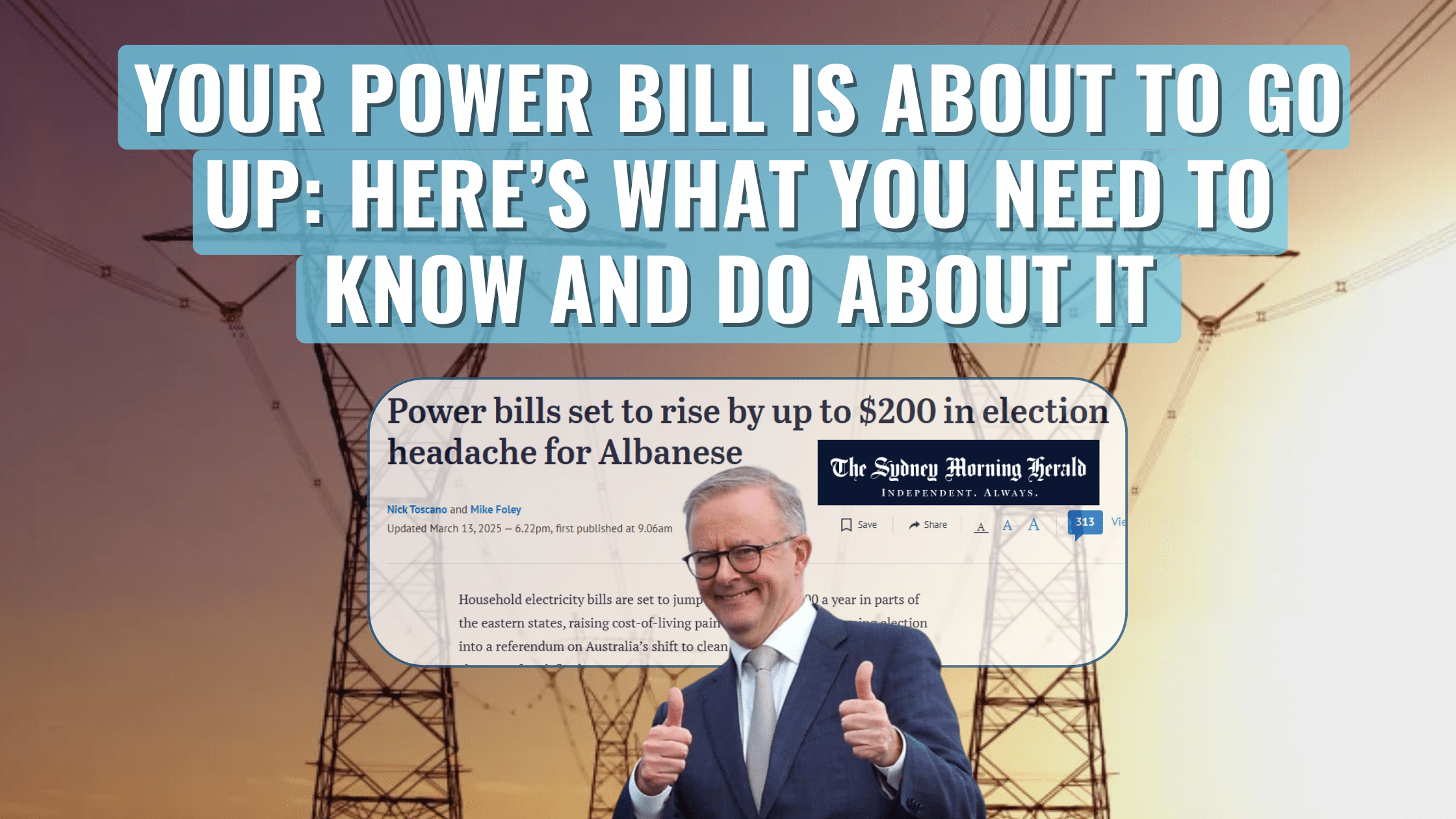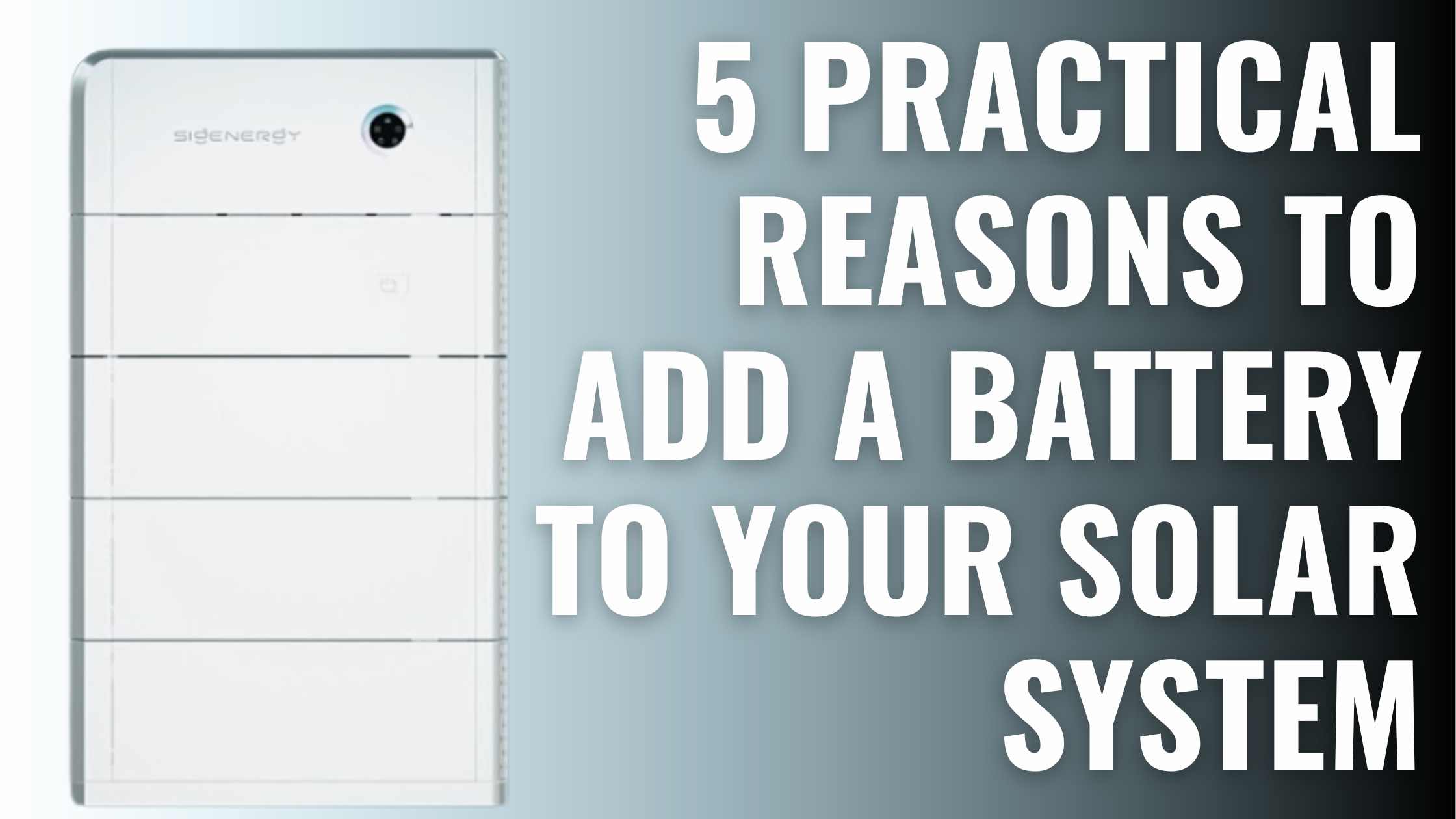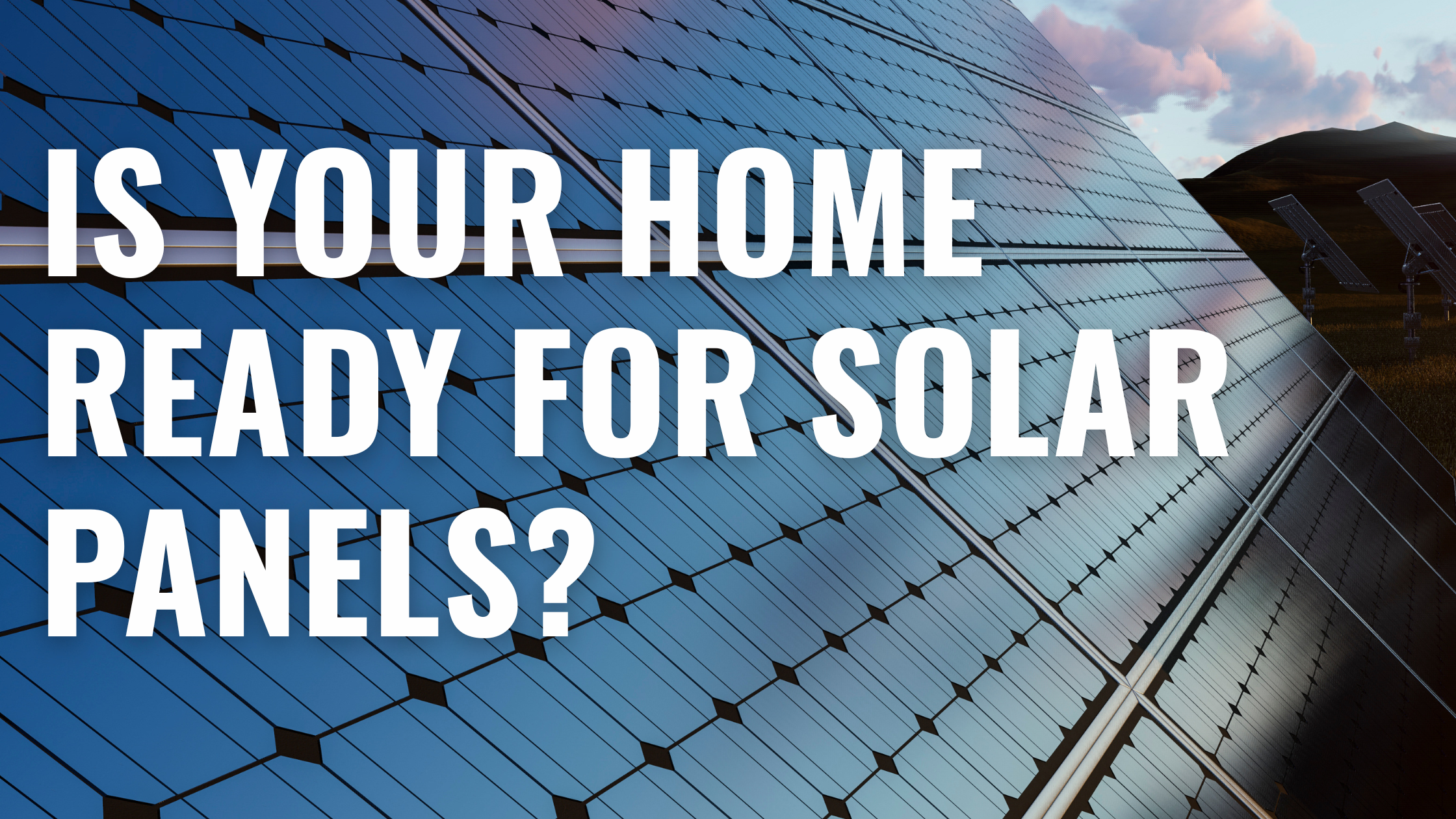
Written by Donna Wentworth
Last Updated: April 22, 2025
Your Power Bill Is About to Go Up: Here’s What You Need to Know and Do About It
Did you know that your electricity bills are set to increase again by up to $200? Energy regulators just dropped some big news last 13 March 2025 they’re planning to raise price caps for electricity, which means higher bills for a lot of people. In NSW, prices could go up by as much as 8.9%, while in parts of Victoria, the increase could be around 5%, or about $68.
Some households in the eastern states could see an increase of up to $200 a year. This adds to the growing cost-of-living pressure and is likely to make energy policy a big issue in the upcoming election, especially with Australia moving toward clean energy and coal power plants shutting down.
This is the last thing Australian households need right now.
So why are power prices going up—again?
While Canberra argues over solutions, you’re still left footing the bill.
In this blog, you’ll understand why your electricity bill is rising, what the political energy debate really means for you, and—most importantly—how you can take control of your energy costs.
Why Are Electricity Prices Rising?
Electricity prices across the eastern states are set to increase by up to 8.9% this year, adding as much as $200 to annual household costs. But why?
Ageing Coal Power Plants Are Failing
Australia’s electricity grid still relies heavily on coal-fired power stations, but many of these plants are old and breaking down more often. Every time a coal plant unexpectedly shuts down, there’s a shortfall in supply. To fill the gap, expensive gas-fired generators step in—driving up wholesale electricity prices.
Energy regulators have pointed to these sudden outages as a major factor in rising power costs. With more coal plants expected to close in the coming years, this issue isn’t going away anytime soon.
High Fossil Fuel Prices Are Making It Worse
Global energy prices have surged since 2022, largely due to supply chain disruptions and international demand for coal and gas. Even though Australia produces its own coal and gas, domestic prices are still affected by global markets. When coal and gas become more expensive, electricity prices follow suit.
Infrastructure and Renewable Energy Costs
Transitioning to a cleaner energy future isn’t free. The expansion of renewable energy—such as solar and wind farms—requires significant investment in infrastructure, including new transmission lines and battery storage. These costs are being factored into electricity prices, though experts argue renewables will lower bills in the long run.
Weather and Supply Issues
Australia’s energy system is highly dependent on weather conditions. A wind drought in 2023, combined with a cold winter, led to a temporary spike in wholesale prices. Events like this highlight the need for a more stable and reliable energy mix.
The Political Energy Debate: Renewables vs. Nuclear
With an election looming, both major parties are pitching different solutions to Australia’s energy crisis. The Albanese government is sticking with renewables, while the Coalition is pushing for nuclear power. But what do these plans really mean for your power bill?
Labor’s Plan: More Renewables, Lower Long-Term Costs
The Albanese government aims to boost renewables to 82% of Australia’s electricity mix by 2030. The argument? The more renewables in the system, the cheaper electricity should become over time.
Energy Minister Chris Bowen claims coal-fired power stations are unreliable and expensive, while renewable energy—once built—delivers electricity at a much lower cost. However, the transition isn’t instant. Building wind and solar farms, upgrading transmission networks, and adding battery storage all require upfront investment, which is contributing to higher power prices right now.
To help struggling households, the government is also providing energy bill subsidies, with another round expected in the upcoming federal budget.
The Coalition’s Plan: Nuclear Power as the Solution
Opposition Leader Peter Dutton is pushing for a fleet of nuclear power plants across Australia, arguing that nuclear power will provide reliable, low-emission electricity at a lower cost than renewables. The Coalition claims this plan will lead to electricity bills being 44% cheaper by 2050.
However, many energy experts and government agencies—including the CSIRO and the Australian Energy Market Operator—disagree. They argue that nuclear power is one of the most expensive energy sources to build and won’t provide cost savings compared to a renewables-based grid.
There’s also a timing problem. The Coalition’s plan wouldn’t see the first nuclear plant operational until at least 2037, meaning power prices could remain high for well over a decade. In the meantime, keeping ageing coal plants running would add more costs and reliability risks to the system.
So, Which Plan Will Actually Lower Your Power Bill?
Both sides make big claims, but the reality is complex:
- Renewables are already the cheapest form of new electricity generation but require major infrastructure upgrades.
- Nuclear power could provide reliable energy but is expensive and would take decades to build.
- Coal and gas remain essential for now but contribute to rising costs due to global prices and ageing plants.
For now, your power bill is more likely to be impacted by short-term factors—like energy subsidies, gas prices, and grid reliability—than by long-term political promises.
What Should You Do to Manage Rising Electricity Costs?
With power prices climbing, you don’t have to just accept higher bills. There are practical steps you can take to cut costs and improve energy efficiency at home. Here’s how:
Compare Energy Plans and Switch Providers
Many households are on default electricity plans, which are often more expensive than competitive market offers. You can potentially save hundreds per year by shopping around for a better deal.
- Use comparison websites like Energy Made Easy (for most states) or Victoria’s Energy Compare to find a cheaper plan.
- Look for discounts on usage rates or sign-up incentives.
- Consider fixed-rate plans to lock in lower prices and avoid sudden hikes.
Reduce Energy Use Without Sacrificing Comfort
Small changes can add up to big savings on your power bill.
- Upgrade to LED lights – They use 75% less energy than incandescent bulbs.
- Switch off appliances at the wall – “Vampire power” from standby mode can cost $100+ per year.
- Wash clothes in cold water – Heating water accounts for 90% of washing machine energy use.
- Adjust your thermostat – Setting it 1°C higher in summer or lower in winter can save up to 10% on heating/cooling costs.
Take Advantage of Government Rebates and Solar Incentives
There are government rebates available that can help reduce your electricity bills:
- Solar rebates & feed-in tariffs – If you install solar panels, you can earn money by feeding excess energy back into the grid.
- Energy bill concessions – Check if you qualify for low-income household rebates or senior discounts in your state.
- Energy efficiency upgrades – Some states offer grants for home insulation, efficient appliances, or battery storage systems.
Invest in Solar
While the upfront cost of installing solar panels can be high, they can pay for themselves within a few years. Households with solar can save up to $1,000 per year on electricity, depending on usage and location.
If you already have solar, consider:
- Adding battery storage to use solar power at night.
- Switching to a better feed-in tariff to get paid more for excess energy.
Let Lenergy Help You Cut Your Power Bills
Electricity prices are going up, and political debates won’t change that overnight. But by choosing the right energy plan, improving efficiency, and considering solar, you can take control of your power costs.
At Lenergy, we help Australian households and businesses slash their electricity bills by offering expert advice, solar solutions, and access to the best energy plans. Whether you’re looking to switch providers, install solar panels, or maximise your energy savings, we’re here to help.
Want to lower your electricity bill today? Contact Lenergy for a free energy consultation and start saving now.








